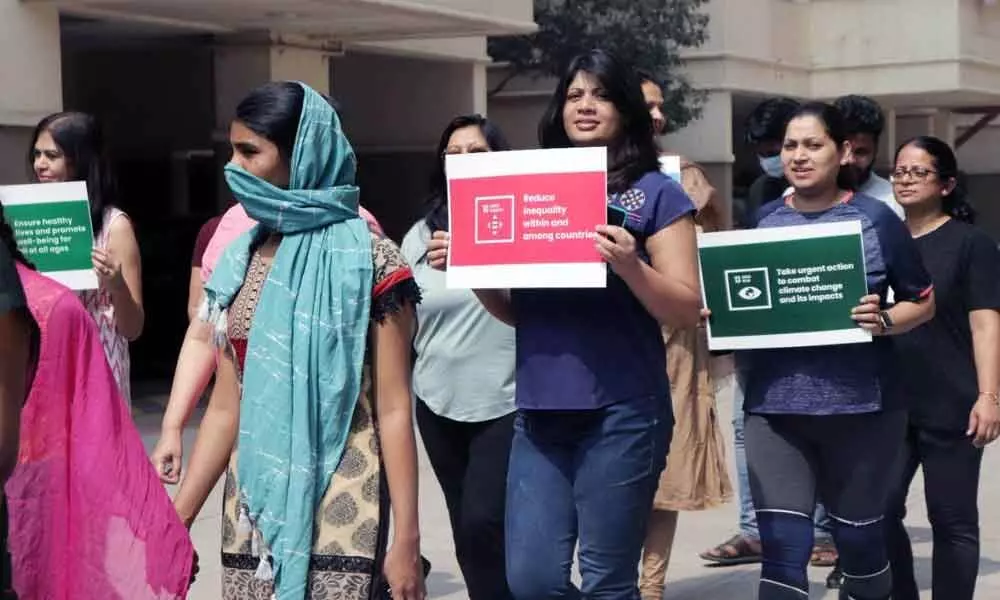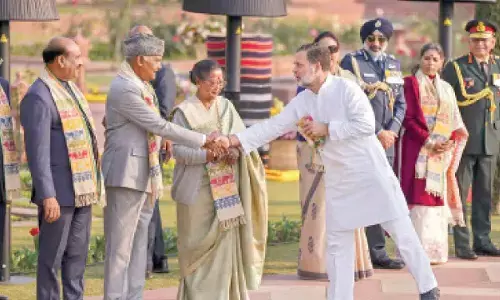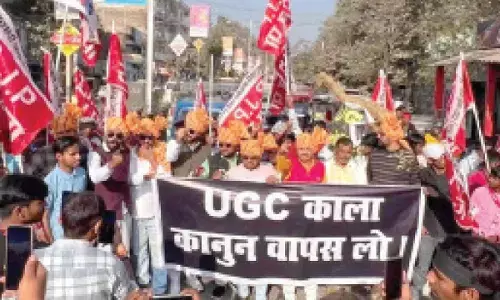Women walk to bring awareness on menstrual hygiene

Good Universe, a society to foster sensitivity and awareness on menstrual hygiene and women’s sexual reproductive health, hosted a global virtual walk Good Walk, ‘Ek Kadam Ek Pehal- 2022’, commemorating the International Women’s Month.
Good Universe, a society to foster sensitivity and awareness on menstrual hygiene and women's sexual reproductive health, hosted a global virtual walk Good Walk, 'Ek Kadam Ek Pehal- 2022', commemorating the International Women's Month.
Over 1500 participants from across the globe, including students, activists, professionals, changemakers, influencers and celebrities took part of the walk.
The objective of the walk was to initiate dialogue around menstrual hygiene considered to be a social taboo, to curb the looming environmental disaster of plastic base pads ending up in landfills and save the money spent on single used pads, for the welfare of marginalized communities. This initiative of Good Universe is co-hosted by Badlaav Foundation, powered by Sayfty, supported by Society for Cyberabad Security Council, Silicon Labs & Blue Yonder.
Menstrual hygiene continues to be a cause for grave concern in India. 36% Of the country's population are menstruators, however only 3% of the rural women use sanitary napkins and an alarming 52% do not use hygienic menstrual products. The situation becomes grim as 70% of the mothers perceive menstruation to be impure and is a taboo topic in homes, schools, colleges, and public places. Nearly 23 million girls dropping out of school annually due to lack of proper sanitation facilities, compounds the problem further.
The noble objective of the walk is to break taboo and stigma surrounding menstrual health and bring women's health to the center stage, says Neloufer Tabbassum, Co-Founder, Good Universe.
As part of this initiative, Good Universe has envisaged an ambitious plan for this year to support 15,000 marginalized women with menstrual hygiene needs such as sustainable Menstrual Education and products like cups and pads. Simultaneously it aims to prevent 36,00,000 non-biodegradable pads, weighing about 90,000 kgs ending up in landfills, while working towards empower marginalized women economically by saving up to Rs 1.6 crores, otherwise spent on environmentally hazardous pads.
It's extremely distressing to witness the dialogues on menstruation, access to menstrual hygiene and women's sexual-reproductive health being hushed up and considered a taboo, even today, despite the scientific temper we profess, says Dr Anusha Pilli, Public Health Professional.














